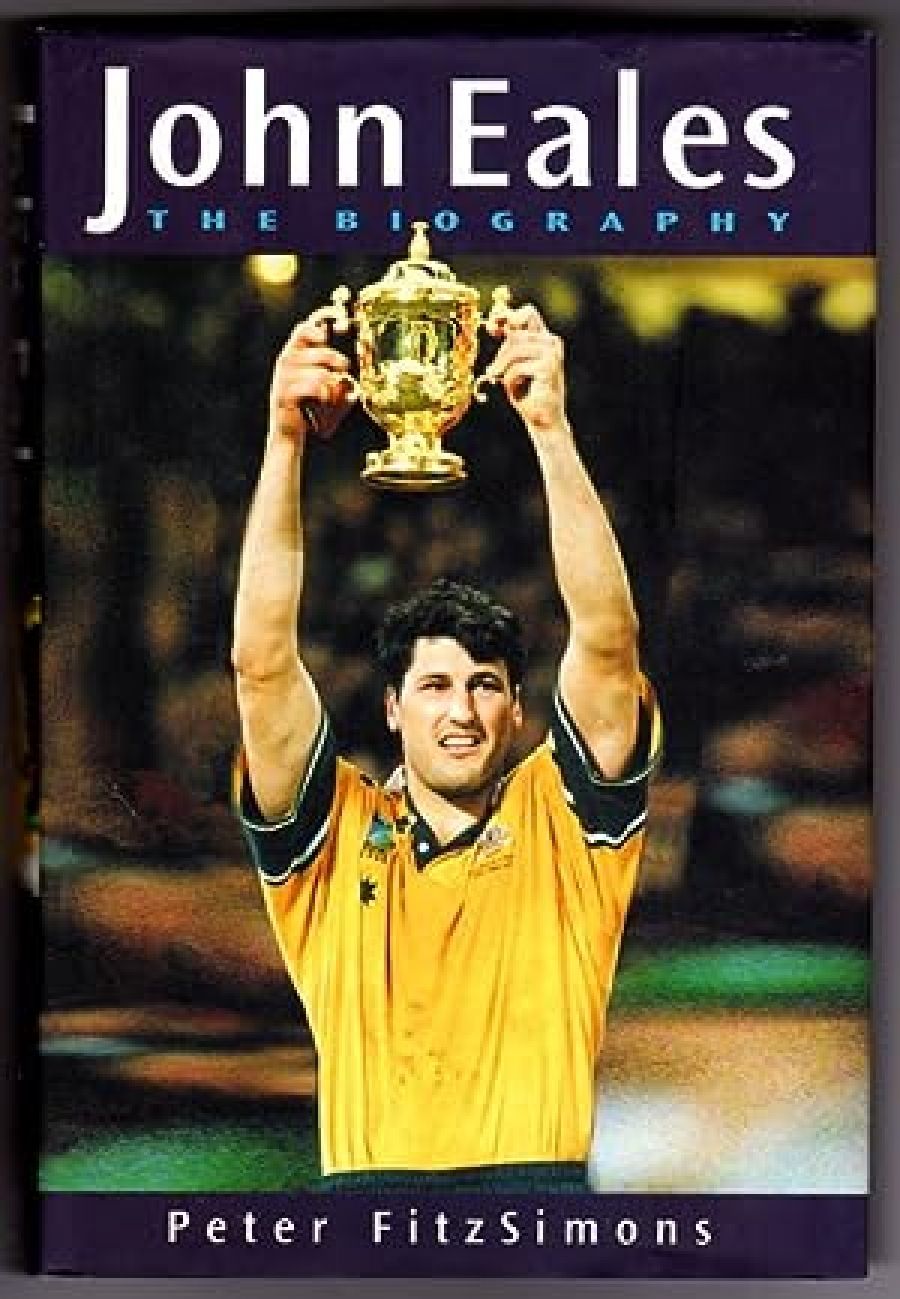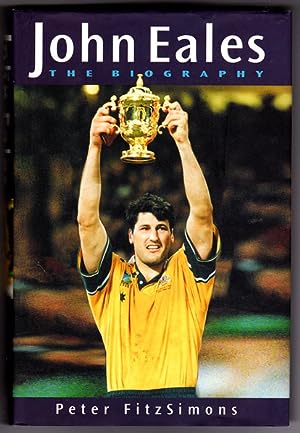
- Free Article: No
- Contents Category: Biography
- Review Article: Yes
- Article Title: Electric Eales
- Online Only: No
- Custom Highlight Text:
Australians have always played their sports hard. We who would have given a soft part of our anatomy to have worn the baggy green for Australia love a winner or a victorious team. Our sporting aristocracy has often been characterised by a gimlet-eyed, thin-lipped determination and ruthlessness: Don Bradman is the apotheosis of these champions.
- Book 1 Title: John Eales
- Book 1 Subtitle: The Biography
- Book 1 Biblio: ABC Books, $39.95 hb, 360 pp
- Book 1 Cover Small (400 x 600):

The triumph of Eales as a rugby player is also the story of the transformation of the Australian rugby union team from an outfit of second-division battlers into the most consistently successful rugby team in the world over the last decade. Since Eales came into the side in 1991, Australia has won two World Cups – the only nation to have done so. There is not a trophy his teams have not won in that time. Eales has not been solely responsible for this. But, during his captaincy since 1996, we have also seen the remarkable transformation of an amateur sport of interest only to middle-class professionals and ex-public schools types (‘rah-rahs’, as Rugby League writers like to call them) into a massive sporting industry worth millions in Australia and billions worldwide, all due to Rupert Murdoch’s pay-TV dollars.
Remarkably, within the hurly-burly of this revolutionising of international rugby, Eales has never lost his perspective. While some of his coaches and chauvinistic media camp-followers have assiduously and boorishly engaged in psychological warfare against the opposition, Eales has remained, as the London Times put it in June this year, ‘a gentle man’. The newspaper went on to say, ‘though he has climbed to rugby’s pinnacle, he has done it without the oxygen of self-obsession and all-consuming passion’.
A mark of the man is a story told against himself by Eales to FitzSimons. In a Byron Bay supermarket, home from the 1999 World Cup victory, he was approached by two children seeking autographs. An old man in the queue ahead of him turned and stuttered, ‘Are you wi-, wi-, wi-’. Eales, trying to be helpful, said, ‘With the Wallabies?’ The old fellow said, ‘N-no, wi-, with the Wi-Wiggles?’
Not only did his team-mates respect him as one of the finest players ever to pull on an Australian jersey, they loved him. Yet, although he finally left the arena this year as a champion, it was also as a man serenely knowing that, for all the glory of wearing the Gold, there is a world outside football. His opponents were both happy and sad to see him go.
Peter FitzSimons, perhaps best-known for his fine biography of Kim Beazley, is the author of this intriguing and generous portrait of an unusual sportsman. He has also recently published an account of the life of Nancy Wake; written a number of volumes of rugby journalism; conducted a brilliant piece of investigative journalism into the machinations over the press’s takeover of international rugby; and is an avidly-read sports writer for the Sydney Morning Herald. Fitzsimons is uniquely placed to write the story. He was himself a distinguished Wallaby. Poignantly, it was his place in the Australian team that was taken by the twenty-year-old Eales in 1991.
The book has become a publishing phenomenon. It has sold over 70,000 copies in Australia and is selling large numbers in the UK and New Zealand, where Eales is regarded as a demi-god in rugby circles. The book’s amazing popularity has, FitzSimons would probably concede, more to do with the esteem in which Eales is held, and the sustained success of the Wallabies under his leadership, than with the inherent qualities of the writing or even the dramas of Eales’s own life.
That said, FitzSimons, an adherent of the New (now middle-aged) Journalism, is no mean writer. His columns fizz with sharp humour and tangy anecdotes. However, while he has the stamina for the longer work, his style flattens out on the long-distance run. But he makes up for it. An intelligent man himself, FitzSimons seeks to surpass the common-or-garden sports biography by exploring the inner man, asking some of the deeper questions. If he doesn’t succeed on all levels, this is, nevertheless, sports writing of a high order.


Comments powered by CComment